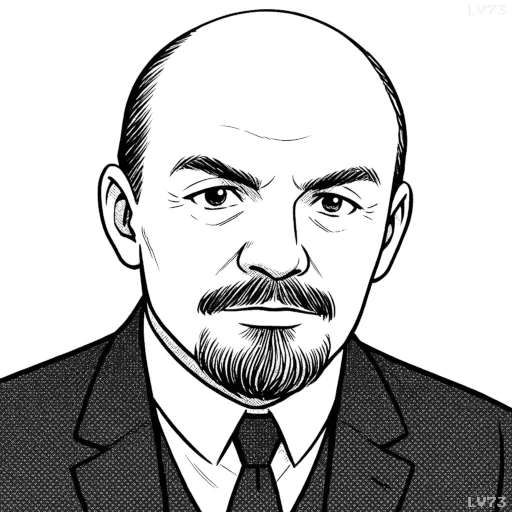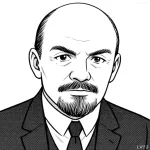“Under socialism all will govern in turn and will soon become accustomed to no one governing.”

- April 22, 1870 – January 21, 1924
- Born in the Russian Empire
- Revolutionary, political theorist, lawyer, state leader
table of contents
Quote
“Under socialism all will govern in turn and will soon become accustomed to no one governing.”
Explanation
This quote presents Lenin’s vision of a future socialist society, in which governance is decentralized and power is exercised collectively by the people. Lenin believed that under socialism, the state would gradually “wither away”, as the need for centralized political authority would diminish once class divisions were abolished. The idea of “all will govern in turn” reflects a vision of direct democracy where everyone has the opportunity to participate in decision-making, without being governed by a permanent ruling class or bureaucracy. Over time, Lenin suggested that the concept of government itself would become obsolete as society learns to govern itself collectively and cooperatively.
Historically, Lenin’s perspective emerged from his commitment to Marxist theory, which holds that the state is a tool of class oppression. In the early years of the Soviet Union, Lenin and the Bolsheviks faced the challenge of transitioning from a revolutionary state to a stateless, classless society. Lenin viewed the role of government under socialism as transitional — intended to defend the revolution and dismantle the old capitalist structures, but ultimately temporary. Over time, as the proletariat gains class consciousness and control over the means of production, the need for a central government would decline. The ideal would be a self-regulating society without coercion or hierarchical authority.
In modern terms, this quote continues to inspire debates about direct democracy, collective governance, and the nature of the state. Critics of centralized power in contemporary socialist or anarchist thought may see Lenin’s vision as an aspiration towards decentralized and participatory political systems, where citizens are actively involved in governance. However, in practice, achieving such a society has been challenged by the persistence of bureaucratic control and the difficulty of dismantling state structures, even under socialist regimes. Lenin’s quote remains a provocative challenge to the notion that government and hierarchy are permanent features of human society. It suggests that true socialism involves empowering people to govern themselves, ultimately eliminating the need for governing bodies altogether.
Would you like to share your impressions or related stories about this quote in the comments section?

